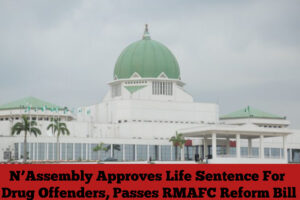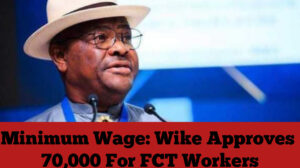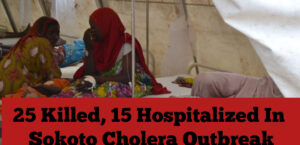
Nigerian police fired tear gas on Thursday to break up several hundred protesters in the northern city of Kano and in the capital Abuja where demonstrators had joined in nationwide rallies against the high cost of living.
Africa’s most populous country is struggling with soaring inflation and a sharply devalued naira after President Bola Ahmed Tinubu ended a costly fuel subsidy and liberalised the currency a year ago to improve the economy.
Tagged #EndbadGovernanceinNigeria, the protest movement won support with an online campaign, but officials had warned against attempts to copy recent violent demonstrations in Kenya, where the government was forced to abandon new taxes.
In Kano, the country’s second largest city, protesters tried to light bonfires outside the state governor’s office and police responded with tear gas, forcing most of the demonstrators back, an AFP correspondent at the scene said.
Several hundred protesters also marched in the Ikeja area of the economic capital, Lagos.
In Abuja, security forces blocked off roads leading to Eagle Square — one of the planned protest sites — while several hundred protesters gathered at the nearby national stadium before marching towards the square.
Security forces later also fired tear gas to disperse crowds in Mararaba on the outskirts of the capital and in its centre, an AFP reporter said.
Many Nigerians are struggling with high costs — food inflation is at 40 percent — and a tripling of fuel prices, but many people were also wary about insecurity around protests.
“Hunger has brought me out to protest,” said 24-year-old demonstrator Asamau Peace Adams outside the National Stadium in Abuja before tear gas was fired. “It’s all down to bad governance.”
Small groups of protesters also gathered in Kano, an AFP correspondent said, before they started to vandalise signposts and try to light fires.
“We are hungry — even the police are hungry, the army are hungry,” said factory worker Jite Omoze, 38.
“I have two children and a wife but I can’t feed them anymore,” he said, calling for the government to reduce fuel prices.
On the eve of the protests, government officials urged young activists to reject rallies and allow time for Tinubu’s reforms to take hold and improve the economy.
Economic pain
But protest leaders, a loose coalition of civil society groups, vowed to press on with rallies despite what they say were legal challenges trying to limit them to public parks and stadiums instead of marches.
The government on Wednesday listed aid it has offered to alleviate economic pain, including raising the minimum salary levels, delivering grains to states across the country and aid to the most needy.
“The government of President Tinubu recognises the right to peaceful protest, but circumspection and vigilance should be our watch words,” Secretary to the Federation of Government George Akume told reporters.
The last major protest in Nigeria was in 2020 when young activists rallied against the brutality of the SARS anti-robbery squad in demonstrations that evolved into some of the largest in Nigeria’s modern democracy.
But the rallies ended in bloodshed in Lagos. Rights groups accused the army of opening fire on peaceful protesters, but the military said troops used blanks to break up a crowd defying a curfew. Amnesty International said at least 10 people died.
Nigeria’s protests come after Kenyan President William Ruto was forced to repeal new taxes and name a new cabinet following weeks of anti-government protests in the worst crisis in his almost two years in office.
In Uganda, officials also arrested dozens earlier this month after they took part in banned anti-corruption protests organised online by young activists inspired by Kenya’s rallies.
punchng.com




